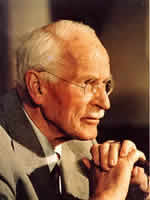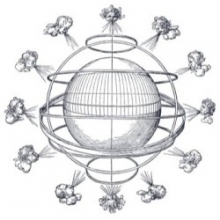Analytical Psychology originated in the work of the Swiss psychiatrist Carl Gustav Jung (1875-1961). Offering a comprehensive model of the human psyche, analytical psychology includes a psychotherapeutic approach for improving mental health and facilitating maturation of the personality as well as a theoretical body of knowledge with wide applicability to social and cultural issues.
The International Association for Analytical Psychology (IAAP) was founded in 1955 and is the accrediting and regulatory organization for all professional analytical psychologists’ groups. The main objectives of the IAAP are to advance the understanding and utility of analytical psychology worldwide, and to ensure that the highest professional, scientific and ethical standards are maintained in the training and practice of analytical psychologists among its Member Groups.

The IAAP addresses these objectives, in part, by organizing a regular triennial international congress and offering assistance to various regional and professional meetings. In addition to overseeing and financing the publication of the Congress Proceedings, the IAAP supports relevant research projects, and promotes the translation and dissemination of important contributions to the Jungian literature. As part of its mission to promote analytical psychology worldwide, the IAAP actively encourages the formation of Developing Groups in countries and regions without existing IAAP Groups and furthers their progress by organizing local courses and conferences, by supporting the growth of their libraries, and by assisting in ways that foster their integration into the larger community.
As an international body, the IAAP promotes communication among its member groups and coordinates their activities. This is done by publishing a yearly Newsletter, maintaining a website (www.iaap.org), coordinating information about the professional status of analytical psychologists in different countries, and assisting its member societies to negotiate with the state authorities and with one another.
Overall, the IAAP endeavours to facilitate the growth of local initiatives while remaining respectful of the autonomy of its member groups.
(www.iaap.org )


.jpg)

 (Opracowane na podstawie przedmowy Jerzego Prokopiuka do pracy: "Odpowiedzi Hiobowi" Carla Gustava Junga, Wyd. "Ethos", Warszawa 1995)
(Opracowane na podstawie przedmowy Jerzego Prokopiuka do pracy: "Odpowiedzi Hiobowi" Carla Gustava Junga, Wyd. "Ethos", Warszawa 1995)